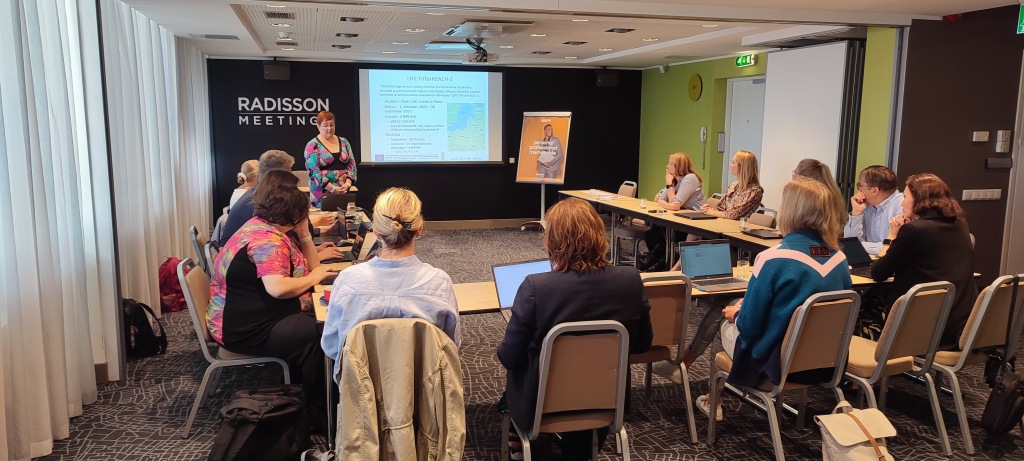Addressing national authorities bridge the way to the project success
LIFE FitforREACH-2 implementers consider national authorities as important stakeholders for the project to provide input, act as multipliers, support the project activities and help to disseminate results via their channels. In June – July, we organized first series of round table meetings in Estonia, Latvia, Lithuania and Poland to introduce the project and its activities with companies, and to exchange viewpoints with national authorities to benefit the project implementation in countries. As an outcome from these discussions here we highlight some topics of relevance for the common project success.

Work with companies is placed at the centre of the project by presenting the opportunity for SMEs to take part in activities and benefit from assistance the project is offering. It has been pointed out that REACH is one of the costliest regulations for industry. The project implementation shall help companies to understand that the management of chemicals can be carried out by the company`s own staff, who can always seek some advice from the relevant authority.
Connecting the circular economy to chemicals has been identified as a complex topic being still in its early stages. Aspects regarding hazardous substances in waste is taken up by the project. Assessing that waste companies do not know much about chemicals; the key issue will be on how to understand and estimate the presence of hazardous chemicals in waste materials.
It is often the case that poor awareness on the requirements of chemical legislation (REACH, CLP) occur among small companies, downstream users, entrepreneurs marketing niche products. The project is paying an effort for acquiring chemical literacy which is a very important facet to build on. Trainings with the relevance for companies and tailored modules to the target groups are seen as the most advantageous. Here the supporting materials, e.g., a handbook, set of tools, useful platforms will be a big help.
Various tools to help the companies will be useful if they are user friendly, simple, and updated after the project end. It was agreed that national authorities will engage in commenting and feedbacking on these tools developed.
Acknowledging the gains from cross-sectoral approach to the project implementation a wide landscape for cooperation and networking options are identified. The project implementers are planning to maintain the cooperation network and organize regular feedback meetings with national authorities within the project duration.